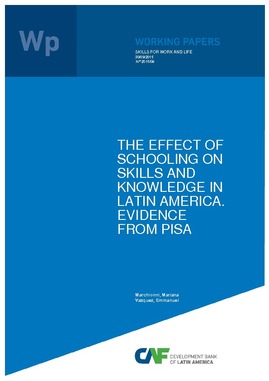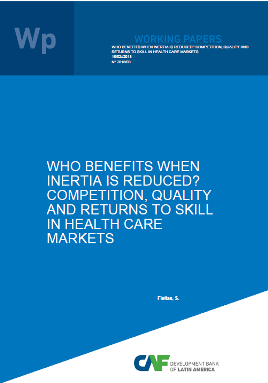The Effect of Schooling on Skills and Knowledge in Latin America. Evidence from PISA
Resumen
In this paper we estimate the causal effect of an extra year of schooling on mathematics skills and knowledge for the eight Latin American countries (Argentina, Brazil, Chile, Colombia, Costa Rica, Mexico, Peru and Uruguay) that participated in PISA 2012. To that end we exploit exogenous variation in students’ birthdates around the school entry cutoff date using a Regression Discontinuity (RD) design. The size of this effect may indicate the extent to which the curriculum being taught in schools at the age of 15 contributes to build the abilities needed to meet the challenges of adult life. We apply both sharp and fuzzy RD approaches to take into account the possibility of imperfect enforcement of school entry rules. Our estimates suggest strong effects of an extra year of schooling on PISA test scores for 15-year-old students, with direct implications in terms of their skills and knowledge. We compare these results to that from high-performing countries.
Materia
Fecha
2015-09-30Citar de esta publicación
Item perteneciente a la Colección

Autor
Marchionni, MarianaVazquez, Emmanuel
Items Relacionados
RED 2016. More Skills for Work and Life: The contributions of Families, Schools, Jobs, and the Social Environment
Skills are the mainstay of human capital. They are the capabilities that a person has to effectively solve different problems. Skills include not only ...
Peer Effects in the Development of Capabilities in Adolescence
We estimate peer effects in cognitive, non-cognitive and health-related outcomes in a sample of Uruguayan high-school students. Our identification ...
Who benefits when inertia is reduced? Competition, quality and returns to skill in health care markets
Increased competition may lead to incentives for firms to increase quality by incorporating higher quality inputs. This is particularly relevant in ...





